Extinction Rebellion are taking meaningful action against the existential threat of climate change. Their latest target: London Fashion Week.
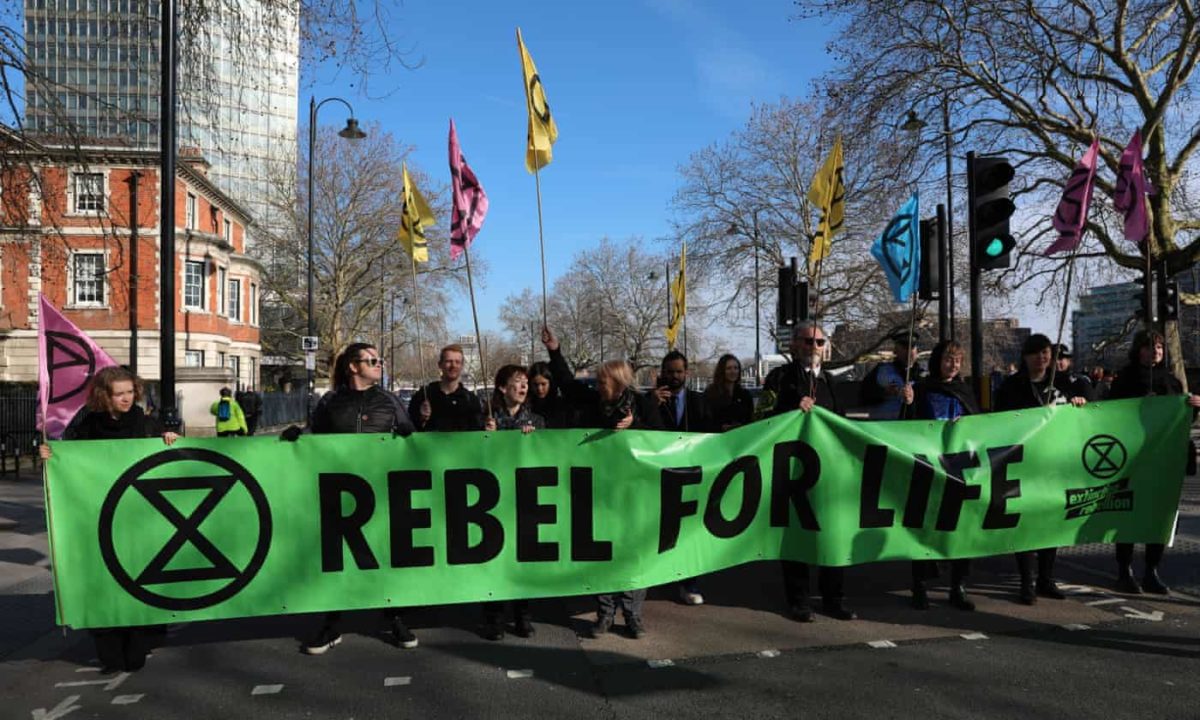
The fashion industry is one of the world’s biggest contributors to climate change. The production of crops used to make garments contributes to environmental contamination, and the industry is responsible for 10 percent of the world’s carbon footprint. Overproduction of fashionable clothes, synthetic fibres and poisoning of ecosystems are the main factors in this industrial pollution.
The four leading global fashion events, London, Paris, Milan and New York, celebrate the consumption that leads us ever closer to climate catastrophe.
Fast Fashion
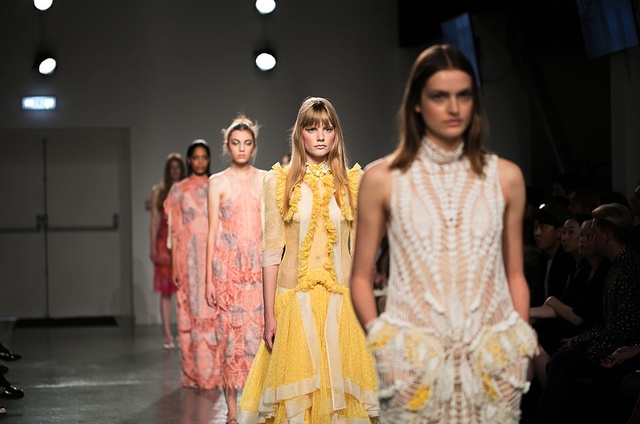
Since the 1960s, the amount of new garments purchased by Americans has tripled. More and more resources are needed to keep up with this rapid increase in demand. The need to constantly be on fashion’s cutting edge is having disastrous consequences for the earth.
Around the world, people consume over 80 billion items of clothing each year. And these items are increasingly seen as disposable. As a result, garments are not being made to last, creating an ongoing cycle of consumption and waste.
To keep up with demand for cheap, disposable fashion, major fashion retailers exploit low-cost labour. Sweatshop factories found all over the world, primarily in Central and South America, Asia, and some parts of Europe, provide much of the clothing in the fast fashion industry.
The 2013 collapse of the Rana Plaza building in Bangladesh caused the deaths of 1,135 garment workers and prompted global condemnation of the appalling conditions suffered by workers around the world. Sadly, around 80 percent of workers producing clothing for U.S. apparel retailers are working under unsafe and unfair working conditions.
The exploitation of workers in the global south is the backbone of an industry rapidly steering the planet towards ecological collapse.
An Inclusive Movement
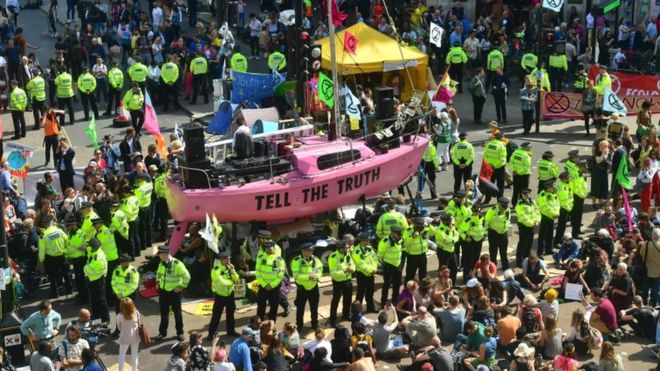
We are in the midst of an abrupt climate breakdown. In a world of unending distractions and compassion fatigue, the extent of the catastrophe at our doorstep is overwhelming.
Extinction Rebellion urges us to face the unprecedented global emergency that we have all entered. And it does this in an inclusive way, actively working to create safe and accessible spaces.
Louise Qiu, Sydney-based artist and Coordinator at Extinction Rebellion Inner West, recently called for action:
“I’m calling you IN.
IN to a highly inclusive space where every person, and part of that person is respected.
IN to a community where communal care, and empathy is fostered to support the mental anguish we all face in the climate crisis.
IN to a place where all individual ideas and creative collaborations are valued, encouraged and empowered.IN to an international network of volunteers, engaging in non-violent direct action for palpable climate-emergency action, where there are no sides except two –
life or death, fight or deny, tyranny or democracy,
Extinction or Rebellion.”
As Qiu states, direct action is required and can be healing. It is:
“A means for joy, passion [and] love in working towards reparation that is long overdue”.
Join The Rebellion
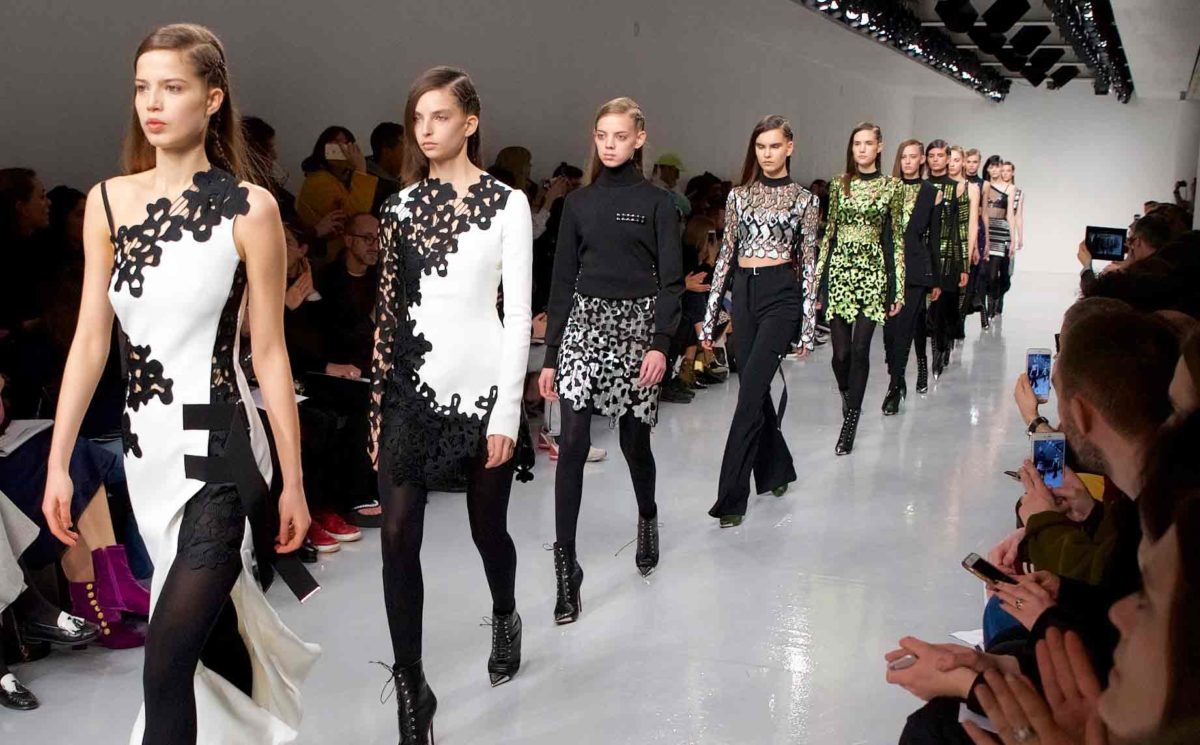
Extinction Rebellion is planning to “shut down” London Fashion Week to raise awareness of the fashion industry’s damaging impact on the environment. 2019’s Fashion Week will take place over five days from September 13.
The activist group is demanding that the British Fashion Council (BFC) cancel the global event. They are calling for “a people’s assembly of industry professionals and designers as a platform to declare a climate and ecological emergency”.
In February, at the last London Fashion Week, the activists disrupted the event with human blockades around venues. Their goal was to force the BFC to declare a climate emergency, and to emphasise fashion’s carbon footprint.The group is planning a “funeral”, London Fashion Week: Rest in Peace, on the last day of the event.
The fashion industry now faces increased scrutiny of its environmental impact, and it’s about time. Both natural and synthetic fibres have hugely detrimental effects on the planet. There must be meaningful changes made in how the industry is run.
Extinction Rebellion’s press release states,
“The theatre of excess that surrounds fashion weeks is hugely out of step with the climate emergency that we face. The fashion industry is one of the world’s most polluting and influential industries. Massive labour rights issues and animal abuse also plague this industry. As a cultural barometer of the times, fashion has a responsibility to Tell The Truth about its environmental impact.”
If there is no radical action taken by 2050, the fashion and textile industry will be responsible for one quarter of all global carbon emissions.
What can we do?
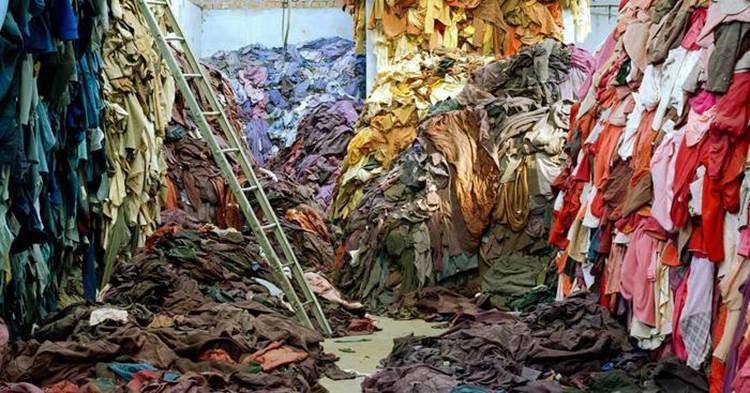
Facing the reality of fashion’s impact on the environment can be difficult. However, it’s possible to enjoy fashion and express yourself in a way that is less harmful to the planet. Some action that each individual can take against the dark side of the fashion industry includes:
- Joining activist organisations such as Extinction Rebellion and Fashion Revolution.
- Finding alternatives to buying new clothes. This can include shopping at op-shops, charity stores and vintage shops. Swapping clothes with friends and renting clothing for special occasions are other positive options.
- Buying from locally-run and locally-sourced labels.
- Researching the ethical status of fashion brands. Baptist World Aid’s annual Ethical Fashion Report is a great place to start, and an easy way to search your favourite brands and see how they compare.
- Avoiding impulse purchases. If you are in a position to do so, focus on buying garments that are built to last.
However, it is clear that this is an issue far greater than the scope of the individual. It’s time for the major players and corporations that form the upper-echelons of the fashion industry to take a stand against climate change.
Before it’s too late.
Subscribe to FIB’s newsletter for your weekly dose of music, fashion and pop culture news!







